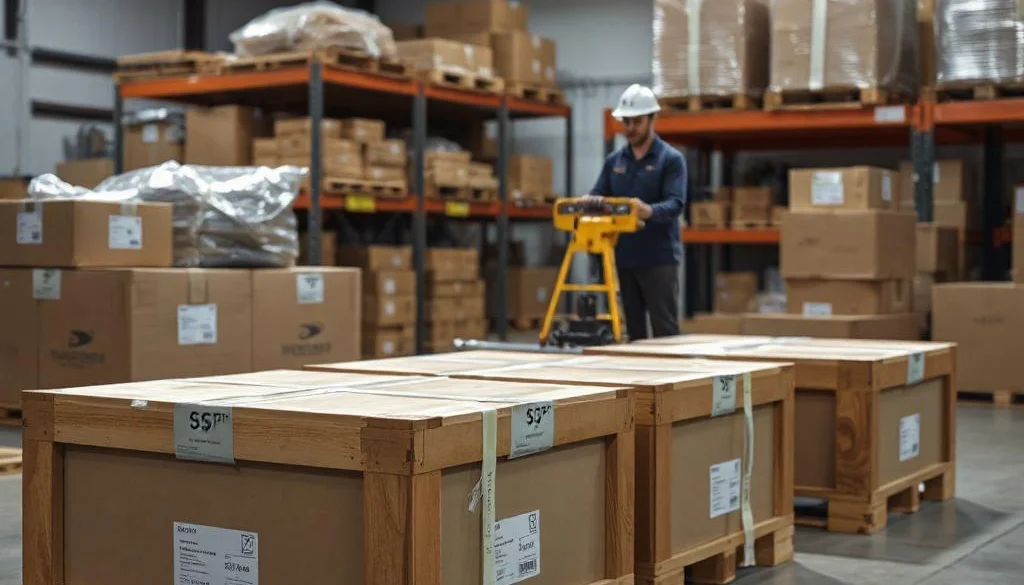
When to Use Crating for Transporting Fragile Goods
Transporting fragile goods demands meticulous care to prevent damage or loss. Crating is a preferred choice for ensuring the safety of fragile items during transport due to its robust protection capabilities. This article delves into the specific scenarios where crating is essential for transporting fragile goods.
Understanding the Importance of Crating
Crating provides unmatched protection for items susceptible to damage, using sturdy materials and customized designs to shield goods from the rigors of transit.
Protecting High-Value Fragile Items
High-value items like fine art, antiques, and premium electronics require superior protection, particularly during shipping. Crating offers a solid barrier against external pressures, impacts, and vibrations, making it ideal for securing these valuable pieces.
Securing Goods for Long-Distance and International Transport – Crating for Transporting Fragile Goods
For items traveling long distances or internationally, crating is crucial. It ensures that fragile items withstand multiple handling stages and adverse environmental conditions like fluctuations in temperature and humidity.
Safeguarding Sensitive Equipment and Instruments
Devices such as medical and laboratory equipment are particularly vulnerable. Crating surrounds these items with a tailored, cushioned environment, essential for protecting against any form of mechanical shock or displacement during transit.
Accommodating Fragile Goods with Irregular Shapes – Crating for Transporting Fragile Goods
Items that do not conform to standard box dimensions, such as bespoke products or items with unique shapes, benefit significantly from custom crating. These crates are engineered to fit the exact dimensions of an item, ensuring snug containment and eliminating movement inside the packaging.
Handling Heavy Fragile Items – Crating for Transporting Fragile Goods
Certain fragile items also carry significant weight, such as large glass panels or stone sculptures. Crates not only protect these items from external impacts but also support their weight to prevent breaking from within.
Conclusion: Crating as a Protective Strategy
Crating is an essential strategy for transporting fragile goods, especially when dealing with high-value items, long-distance journeys, or unusually shaped products. By choosing to crate, companies can significantly reduce the risks associated with transporting delicate items, ensuring they arrive in pristine condition. For further guidance on crating or to discuss specific requirements, visit ProHuber Specialized Services.




